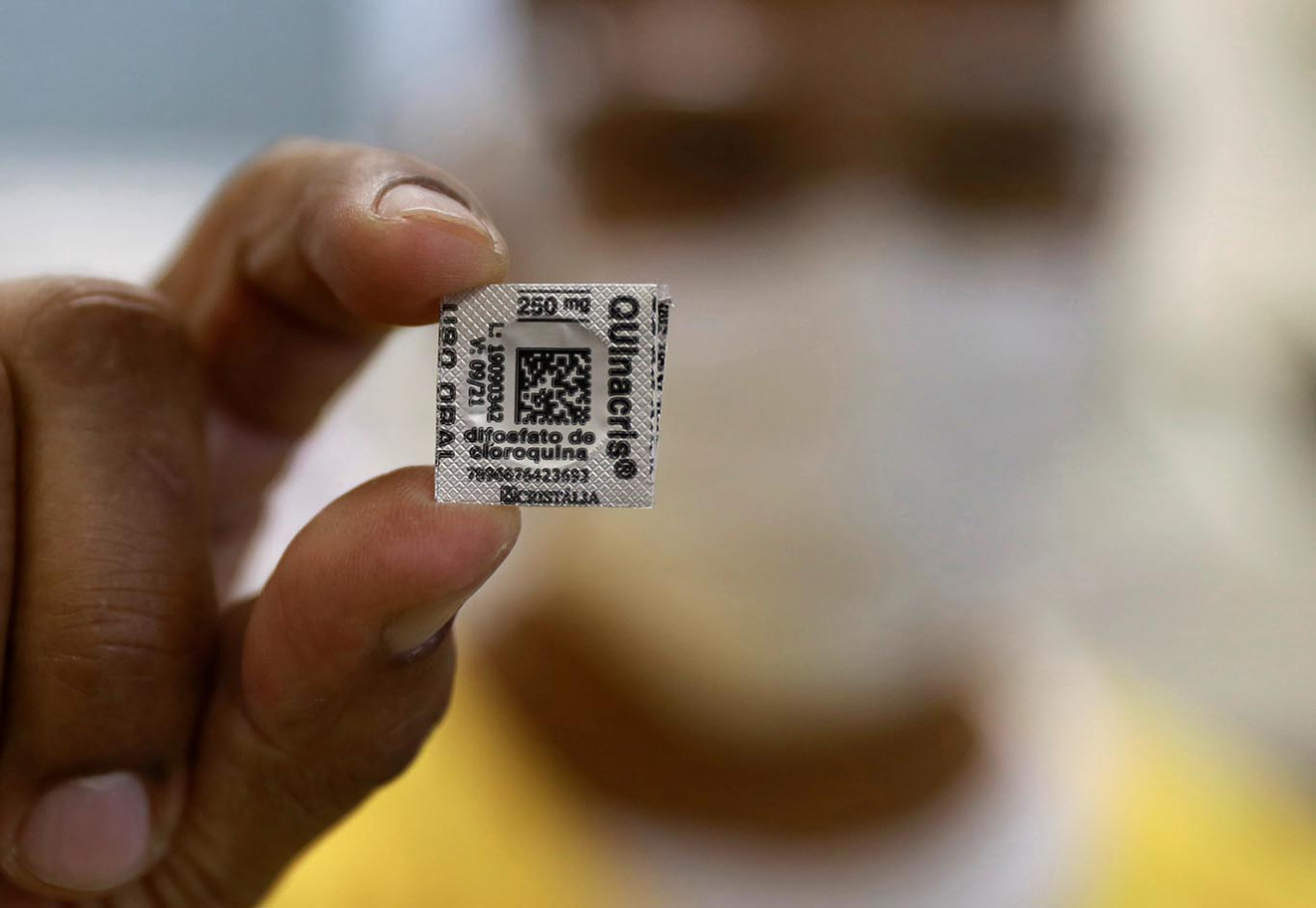Popular Reads
Top Results
Can't find what you're looking for?
View all search resultsPopular Reads
Top Results
Can't find what you're looking for?
View all search resultsWHO trial suspends hydroxychloroquine treatment for new COVID-19 patients
According to a Health Ministry Research and Development Agency (Balitbangkes) letter addressed to the Indonesian Solidarity Trial research team, "hydroxychloroquine randomization for new subjects is suspended".
Change text size
Gift Premium Articles
to Anyone
The Health Ministry Research and Development Agency (Balitbangkes) has issued a circular letter instructing doctors involved in the global clinical Solidarity Trial to suspend the use of hydroxychloroquine for COVID-19 patients over safety concerns.
Twenty-two hospitals in the country have joined the program, led by the World Health Organization (WHO), to run clinical trials on several antiviral treatments to measure their effectiveness, including remdesivir, lopinavir/ritonavir, lopinavir/ritonavir plus interferon and hydroxychloroquine.
According to a Balitbangkes letter addressed to the Indonesian Solidarity Trial research team dated May 26, a copy of which was obtained by The Jakarta Post, "hydroxychloroquine randomization for new subjects is suspended".
The agency wrote that new patients should not be treated with hydroxychloroquine but that patients who had been treated with hydroxychloroquine should continue the treatment under the monitoring, with special attention to the medicine’s side effects on the cardiovascular system.
"[The circular] is only for those involved in the trial. For those who aren’t, it's fine to continue the current treatment,” Balitbangkes chairman Abdul Kadir said on Friday.
Read also: WHO suspends trials of hydroxychloroquine as virus treatment
The Indonesian Society of Respirology (PDPI) called on doctors involved in the study to stop treating patients with hydroxychloroquine on Thursday. However, doctors not involved in the study could continue to follow the COVID-19 management protocol compiled by the PDPI with four other professional organizations until they issued a new one.
The letter, signed by PDPI chairman Agus Dwi Susanto, also asked doctors to evaluate the condition of patients who had been taking hydroxychloroquine and report the results to the organization for consideration in a potential revision to the protocol.
A copy of the protocol obtained by the Post suggests the use of several drugs for COVID-19 treatment, including antimalarials chloroquine phosphate and hydroxychloroquine, antiviral oseltamivir (Tamiflu), which has been used to treat bird flu, and experimental antiviral favipiravir (Avigan), which has been used to treat Ebola patients.
The protocol suggested doctors use the antimalarials to treat patients with mild to severe symptoms within different ranges of time.
Experts are still divided over what medication should be used to treat COVID-19. They have warned doctors to be very cautious when prescribing chloroquine phosphate and hydroxychloroquine and to only use it in severe cases as the side effects may include ruptured blood vessels and heart attacks.
University of Indonesia epidemiologist Pandu Riono suggested the government completely suspend chloroquine treatment.
“Due to the safety concerns, the government should suspend the use of chloroquine and audit all the COVID-19 deaths,” he said.
Read also: 'No benefit' in hydroxychloroquine virus treatment: Two studies
President Joko “Jokowi” Widodo said in March that doctors could use hydroxychloroquine only if they considered it necessary to treat COVID-19 patients. Millions of chloroquine doses had been produced in the country by state-owned pharmaceutical company PT Kimia Farma.
The medicine was easy to find in Papua, where malaria remains a problem. It was later discovered that the drug was being widely sold on e-commerce platforms in the country.
The State-Owned Enterprises (SOE) Ministry said it would wait for the Health Ministry’s recommendation about the drug before choosing to limit distribution.
"It is widely used in many hospitals. If the Health Ministry says they should stop, we will withdraw the medicine,” SOE Ministry spokesperson Arya Sinulingga said.










